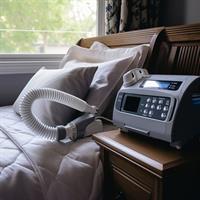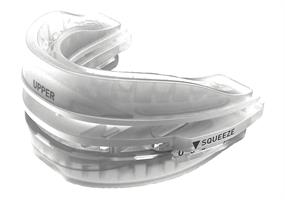Imagine, for a moment, the struggles of a renowned psychologist and professor, Jordan Peterson. Sleep apnea, a severe condition, has been a battle for him. How can someone so knowledgeable in human behavior and mental health find themselves facing such a debilitating condition?
In this article, we will follow Jordan Peterson's journey with sleep apnea, discover the importance of sleep for overall well-being, and uncover alternative treatments and lifestyle changes that can help improve sleep quality and combat sleep apnea.
Key Takeaways
-
Jordan Peterson’s battle with sleep apnea has highlighted the need to recognize and manage it effectively.
-
CPAP machines are an effective treatment, while lifestyle modifications such as nasal breathing techniques, proper tongue positioning and diet/exercise can also help improve sleep quality.
-
Sleep is essential for physical & mental health. Prioritizing it through lifestyle changes can create a foundation for success.
Jordan Peterson's Battle with Sleep Apnea
Jordan Peterson, a prominent psychologist and professor, has been dealing with various health issues, including depression and anxiety that did not respond well to treatment, as well as obstructive sleep apnea. His struggle with sleep apnea led to the discovery of its significant impact on mental health and overall well-being. Peterson’s journey began with his assistant suspecting that both obstructive sleep apnea and central sleep apnea could be the root of his health problems.
Jordan Peterson on Russell Brand's podcast, talking about his sleep apnea.
"I was diagnosed with sleep apnea, severe sleep apnea, and so now I have a machine. And now I'm actually getting some sleep for the first time, in who knows how long, 10 years."
In his search for solutions, he came across the work of Dr. Mike Mew, an expert in the field of sleep and facial growth, as well as insights from Russell Brand on the importance of mental health.
Dr. Mike Mew goes into detail on Peterson's facial features and how they could cause his sleep apnea in a podcast episode.
Peterson’s experience emphasizes the necessity of tackling and managing sleep apnea. Sleep apnea can impede the brain from achieving deep sleep phases, leading to sleep disordered breathing. As a result, many individuals with sleep apnea, like Peterson, may experience chronic fatigue, anxiety, and depression.
Throughout this article, we will explore different aspects of sleep apnea and how lifestyle changes, alternative treatments, and insights from Jordan Peterson can help improve sleep quality and overall health.
The Diagnosis
The process of diagnosing Jordan Peterson’s sleep apnea began with recognizing the indications of the condition.
Common symptoms of sleep apnea include:
-
Severe exhaustion
-
Somnolence during the day
-
Peevishness
-
Exaggerated somnolence during the day
-
Boisterous snoring
-
Difficulty in nasal breathing
These symptoms alerted Peterson’s assistant to the possibility of sleep apnea as the root of his health issues.
Malocclusion, a risk factor often overlooked by medical professionals, was also found to be associated with Peterson’s sleep apnea. Malocclusion is linked to underdeveloped jaws, which can lead to obstructive sleep apnea and chronic fatigue.
The diagnosis of sleep apnea was a turning point in Peterson’s journey, as it allowed him to seek appropriate treatment and understand the connection between sleep apnea and his mental health.
Treatment: CPAP Machine
Upon being diagnosed with sleep apnea, Jordan Peterson began using a CPAP (Continuous Positive Airway Pressure) machine to manage his condition. A CPAP machine is a medical device used to treat sleep apnea by delivering pressurized air through a mask, which helps keep the airway open during sleep and allows for normal breathing. The use of a CPAP machine can result in enhanced sleep quality, decreased snoring, and improved overall health.
Although the CPAP machine has been helpful for Peterson, it is essential to note that it may cause some side effects, such as dry mouth, nasal congestion, and skin irritation.
However, the benefits of using a CPAP machine generally outweigh the potential drawbacks. The CPAP machine has been a crucial component in Peterson’s treatment, helping him manage his sleep apnea and improve his mental health.
Understanding Sleep Apnea
Now that we have delved into Jordan Peterson’s personal experience with sleep apnea, it is crucial to understand the condition itself. Sleep apnea is a sleep disorder characterized by interruptions in breathing during sleep.
It is essential to be aware of the different types of sleep apnea, their symptoms, and potential causes to recognize and manage the condition effectively.
To further explore sleep apnea, let’s dive into its types, symptoms, and causes, which can help us better comprehend the condition and the impact it has on mental health and overall well-being.
Types of Sleep Apnea
There are three primary types of sleep apnea:
-
Obstructive sleep apnea (OSA): This is the most prevalent type and occurs when the airway is blocked due to the collapse of the soft tissue in the back of the throat.
-
Central sleep apnea (CSA): This type is characterized by the brain’s failure to send signals to the muscles that regulate breathing.
-
Complex sleep apnea syndrome (CSAS): This is a combination of both OSA and CSA, occurring when both types of sleep apnea are present concurrently.
Understanding the different types of sleep apnea is vital in determining the appropriate treatment and management strategies. Being aware of these distinctions can help individuals, like Jordan Peterson, take necessary steps to improve their condition and overall health.
Symptoms and Causes
The indications of severe sleep apnea, also known as sleep apnoea, include:
-
Excessive daytime somnolence
-
Boisterous snoring
-
Weariness
-
Peevishness
-
Disturbed sleep
-
Awakening with a choking or gasping sensation
Recognizing these symptoms can help individuals identify sleep apnea and seek appropriate diagnosis and treatment.
Cause of sleep apnea:
-
A narrowing of the airway caused by excess tissue in the throat or tongue
-
Obesity
-
Smoking
-
Alcohol consumption
-
Certain medications
Comprehending the probable causes of sleep apnea is vital to manage and tackle the condition effectively.
Lifestyle Changes for Better Sleep
In addition to medical treatments, such as CPAP machines, lifestyle modifications can play a significant role in enhancing sleep quality and reducing the likelihood of sleep apnea. Nasal breathing techniques, proper tongue positioning, and diet and exercise can all contribute to better sleep and overall health.
Let’s take a closer look at these lifestyle changes and how they can help improve sleep quality and combat sleep apnea, drawing from Jordan Peterson’s experience and insights.
Nasal Breathing Techniques
Nasal breathing, as opposed to mouth breathing, can significantly enhance sleep quality. One technique to promote nasal breathing is called “mewing,” a practice that involves keeping the tongue touching the upper palate to encourage nasal inhalation and greater awareness of it.
Other techniques, such as alternate nostril breathing, nose unblocking exercise, and focused nasal breathing, can help individuals nasal breathe more effectively. This can improve sleep quality and manage sleep apnea for people like Jordan Peterson.
Proper Tongue Positioning
Appropriate tongue placement is essential for optimal sleep quality. The recommended tongue positioning involves keeping the teeth slightly apart, lips closed, and the tip of the tongue resting on the roof of the mouth just behind the front teeth while at rest. This positioning can help protect teeth, improve sleep, and reduce pain in the neck and jaw.
By maintaining proper tongue positioning, individuals can enhance their sleep quality and reduce the risk of developing sleep apnea.
Benefits of tongue devices:
-
Improved airflow during sleep
-
Reduced snoring
-
Decreased risk of sleep apnea
-
Improved overall health
Jordan Peterson’s emphasis on proper tongue positioning highlights its importance in managing sleep apnea and improving overall health.
Diet and Exercise
Adopting a healthy diet and engaging in regular physical activity can significantly improve sleep quality.
Beneficial foods:
-
Fruits and vegetables high in antioxidants, such as blueberries, strawberries, raspberries, spinach, kale, and broccoli
-
Foods containing melatonin, such as cherries, bananas, and oats
-
Foods containing omega-3 fatty acids, such as fatty fish (salmon, tuna, mackerel) and walnuts
By incorporating these foods into your diet, you may experience improved sleep quality and better management of sleep apnea symptoms.
Additionally, following a plant-based diet packed with vitamins, minerals, and fiber can facilitate overall health and decrease the likelihood of chronic illnesses, which can be advantageous for those suffering from sleep apnea. Through proper diet and exercise, individuals can enhance their sleep quality and manage sleep apnea more effectively.
Alternative Treatments and Therapies
While CPAP machines are commonly prescribed for sleep apnea treatment, alternative treatments and therapies, such as snoring mouthpieces and tongue and throat exercises, can also help manage the condition. Exploring these alternatives can provide additional options for those seeking to improve their sleep quality and combat sleep apnea.
In this section, we will delve deeper into snoring mouthpieces as a CPAP alternative and the benefits of tongue and throat exercises for sleep apnea sufferers.
Snoring Mouthpieces as CPAP Alternative
Snoring mouthpieces are devices designed to help reduce snoring and improve sleep apnea symptoms by maintaining an open airway and preventing the tongue from obstructing the airway. They can be utilized as an alternative to CPAP machines for those who find them uncomfortable or inconvenient.
Although snoring mouthpieces may not be as effective as CPAP machines in treating sleep apnea, they can still provide significant benefits in reducing snoring and ameliorating sleep apnea symptoms. However, it is essential to note that they may cause discomfort or irritation in the mouth.
Considering snoring mouthpieces as an alternative treatment can offer additional options for individuals like Jordan Peterson in managing sleep apnea and improving overall health.
Tongue and Throat Exercises
Tongue and throat exercises can be beneficial for those with sleep apnea by strengthening the muscles of the throat and tongue, thus potentially reducing snoring and improving breathing during sleep. Examples of these exercises include tongue twisters, tongue stretching, and throat clearing exercises.
Incorporating these exercises into daily routines can enhance respiration during sleep, decrease snoring, and ultimately improve overall sleep quality. As an alternative or complementary treatment to CPAP machines, tongue and throat exercises can offer additional options for managing sleep apnea and ensuring better sleep quality.
The Impact of Sleep Apnea on Mental Health
Sleep apnea can have a profound influence on mental health, particularly anxiety and depression. The condition’s impact on restful sleep and overall well-being can exacerbate mental health issues, making it even more crucial to address and treat sleep apnea effectively.
In this section, we will explore the connection between sleep apnea and mental health issues, specifically anxiety and depression, and how better understanding this relationship can help individuals manage their condition and improve their overall mental health.
Sleep Apnea and Anxiety
Research suggests a connection between sleep apnea and anxiety, with studies indicating that individuals with sleep apnea are more likely to experience anxiety than the general population. Sleep fragmentation and frequent arousals from sleep, common in sleep apnea patients, may contribute to the development of anxiety.
Furthermore, the severity of anxiety is not necessarily correlated to the severity of sleep apnea, indicating that individuals with sleep apnea may experience higher levels of anxiety regardless of the severity of their condition. Understanding the link between sleep apnea and anxiety can help individuals better manage their condition and address potential mental health issues.
Sleep Apnea and Depression
There is a potential link between sleep apnea and depression, with sleep apnea patients often experiencing sleep difficulties, anxiety, and depressive symptoms. Several studies have suggested a higher rate of depressive disorder in individuals with obstructive sleep apnea.
Treating sleep apnea has the potential to reduce symptoms of depression, highlighting the importance of addressing and managing the condition effectively. By understanding the relationship between sleep apnea and depression, individuals can take necessary steps to improve their mental health and overall well-being.
Jordan Peterson's Insights on Sleep and Overall Health
Jordan Peterson’s experience with sleep apnea offers valuable insights into the importance of sleep and its role as a foundation for success. Peterson stresses the importance of routine and consistency in upholding general health, including sleep. By maintaining a regular sleep schedule and prioritizing sleep, individuals can improve their overall well-being and mental health.
In this section, we will examine Jordan Peterson’s insights on the importance of sleep and its role in overall health and success, drawing from his personal journey and professional expertise.
The Importance of Sleep
Jordan Peterson emphasizes the importance of sleep for overall well-being.
Factors:
-
Aiding in learning and memory formation
-
Promoting mental health and well-being
-
Maintaining a healthy weight
-
Preserving the mind and body in good condition
Obtaining sufficient sleep is essential for overall health and functioning, as poor sleep can have negative consequences.
Dr Peterson advocates for the following lifestyle modifications to improve overall well-being and mental health, which can have a positive impact on the sympathetic nervous system.
Lifestyle Modifications:
-
Rising early
-
Exercising
-
Following a restricted diet
-
Maintaining a consistent sleep schedule
By prioritizing sleep and adopting these lifestyle modifications, individuals can lay a solid foundation for success.
Sleep as a Foundation for Success
Prioritizing sleep can lead to a more successful life, as adequate and quality sleep can help bolster concentration, memory, and general performance. Sleep apnea’s impact on mental health, such as anxiety and depression, further reinforces the importance of obtaining adequate sleep for overall well-being.
Following Jordan Peterson’s insights and recommendations can help individuals prioritize sleep, improve their mental health, and ultimately lead more successful lives.
Here are some steps to take:
-
Treat sleep apnea if you have it.
-
Adopt healthy lifestyle changes, such as exercising regularly and eating a balanced diet.
-
Maintain a consistent sleep schedule, going to bed and waking up at the same time every day.
By following these steps, individuals can lay a solid foundation for success.
Summary
In conclusion, Jordan Peterson’s journey with sleep apnea sheds light on the importance of understanding, treating, and managing this condition. By exploring the different types of sleep apnea, their symptoms and causes, and incorporating lifestyle changes, alternative treatments, and insights from Peterson, individuals can improve their sleep quality and overall well-being.
Prioritizing sleep is crucial for maintaining mental health, laying the foundation for success, and leading a healthier, more fulfilling life.
Frequently Asked Questions
How many hours does Jordan Peterson sleep?
Jordan Peterson sleeps 8 hours each night, adhering to a strict bedtime as part of his commitment to rest and sleep.
How serious is sleep apnea?
Sleep apnea can have serious consequences, as it has been linked to diabetes, strokes, heart attacks and shortened life expectancy.
What is the connection between sleep apnea and mental health issues, such as anxiety and depression?
Sleep apnea can significantly contribute to anxiety and depression, as it disrupts restful sleep and affects overall wellbeing.
What are some lifestyle changes that can help improve sleep quality and combat sleep apnea?
Nasal breathing exercises, proper tongue positioning, and a healthy diet and exercise routine can help to improve sleep quality and combat sleep apnea.
What are the different types of sleep apnea?
Sleep apnea is a serious medical condition that occurs when breathing is interrupted during sleep, and comes in three primary types: obstructive sleep apnea (OSA), central sleep apnea (CSA), and complex sleep apnea syndrome (CSAS).






